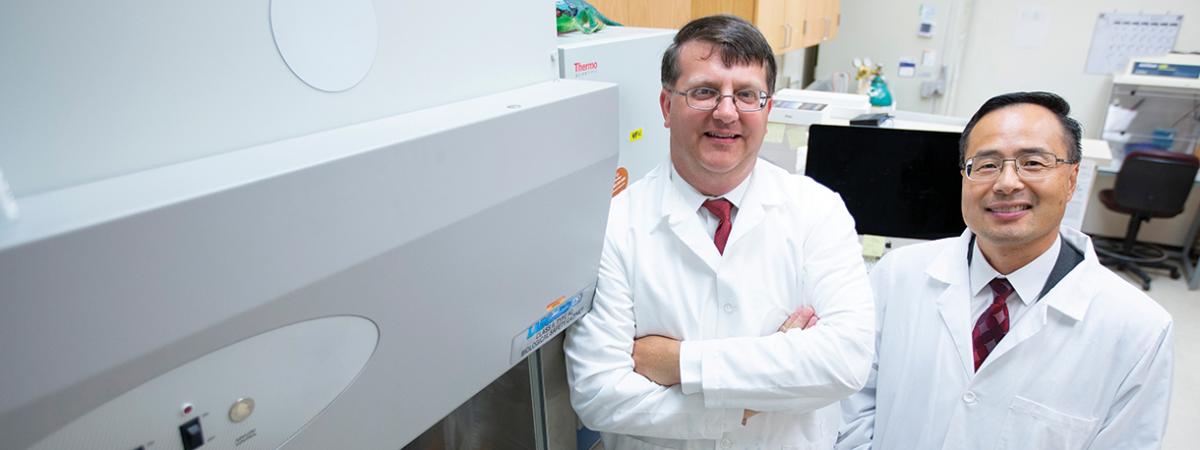
When Dr. Dan Grooms, the newly-appointed Dr. Stephen G. Juelsgaard Dean of Veterinary Medicine, addressed a group of retired faculty members, he didn’t wait too long to talk about the newest initiative in the college.
“Make no mistake about it,” he told the assembled retirees. “This is going to be big, really big.”
Grooms was referring to the Institute for Antimicrobial Resistance Research and Education, a national institute based in the College of Veterinary Medicine with the single goal of addressing antimicrobial resistance, one of the most pressing public health concerns facing the world.
Each year in the U.S., at least 2 million people become infected with bacteria resistant to antibiotics and 23,000 people die as a direct result of these infections. Many more die from complications of an antibiotic-resistant infection, according to the Centers of Disease Control and Prevention.
These drug-resistant “superbugs” can also harm the ecosystem and cost multibillions annually in medical costs and economic losses.
The new AMR institute at Iowa State aims to combat those figures. Led by Dr. Paul Plummer, associate professor of veterinary diagnostic and production animal medicine, the institute developed its roots in 2015 when Dr. Qijing Zhang, Distinguished Professor of Veterinary Medicine, and Dr. Joe Colletti of the College of Agriculture and Life Sciences started talking.
The group developed into a consortium and has rapidly evolved to include not only faculty members from the every corner of campus, but also to institutions across the nation. This led the Association of Public and Land-grant Universities and the Association of American Veterinary Medical Colleges to select Iowa State as the home base of the new national institute.
Collaborators in the institute include the USDA Agricultural Research Service, the University of Nebraska-Lincoln, University of Nebraska Medical Center, the University of Iowa, Mayo Clinic, and a team of more than 100 researchers, educators, clinicians and extension personnel.
As you can see, this is already a really big deal.
“This was initially an Iowa State-centric project, then it became Ames-centric when we added the NADC and finally it become essentially a Midwest Regional One Health Consortium,” Plummer said. “This new institute will build on the foundation we have previously established with the goal of adding other partners in the future.”
To further illustrate how big the AMR Institute will become, soon after the announcement that Iowa State would host the new national institute, Plummer presented to the United Nations General Assembly.
“Antimicrobial resistance is a global priority of the CDC,” Plummer said. “It touches each of us in our daily lives. This new institute provides a great resource for the entire country as we work to build strong, collaborative research and educational programs to mitigate this risk.”
The institute will draw on expertise from basic, translational and applied scientists in veterinary medicine, agriculture, environmental health, public health, medicine, economics and social sciences. But in order to do that, Plummer and his team must get strong stakeholder involvement. He feels the new institute is a great first step.
“This is a unique program,” he said. “I like to call us ‘the poster child of One Health.’
“We need to identify gaps of knowledge we have to answer and build those together to answer the really big questions. And we must do that while bridging human, animal and environmental concerns.”
Plummer knows this is a big task but feels the AMR Institute is up to the task.
“Our primary goal must be to improve and increase the interworking and collaboration on education efforts and research related to antimicrobial resistance,” he said.
October 2018
